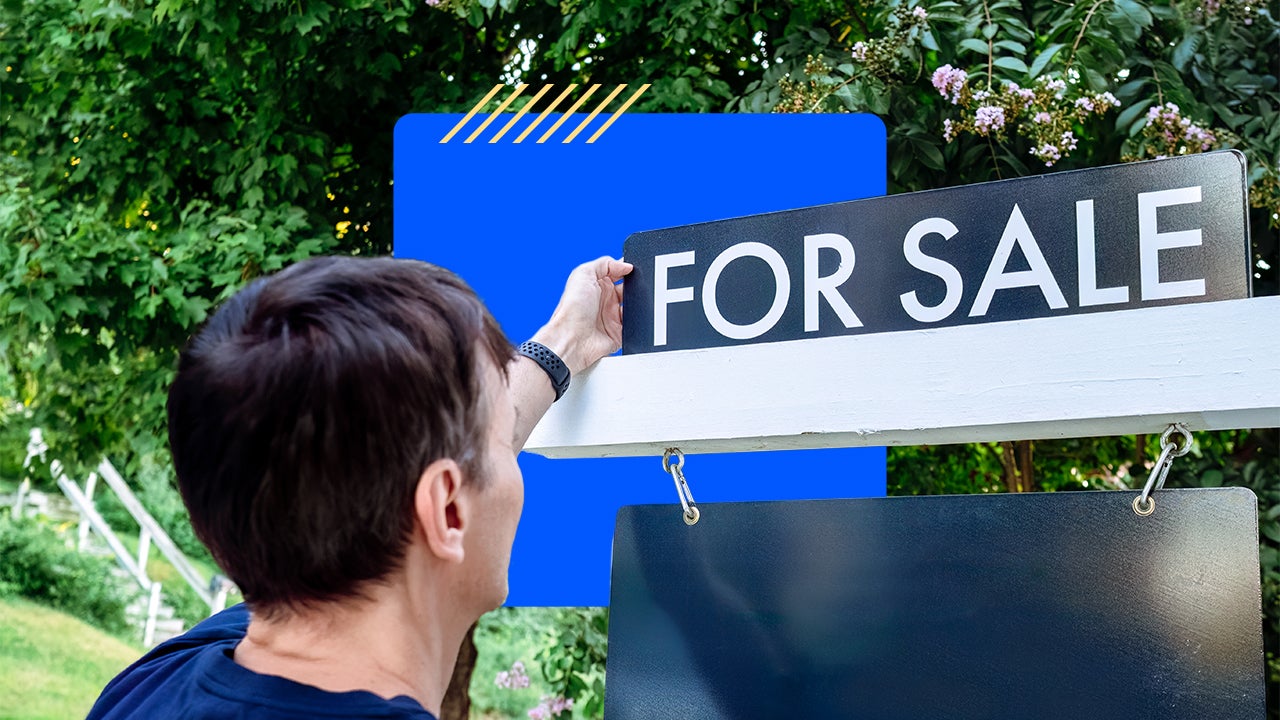Buying a house in Hawaii: A how-to

Thinking about buying a house in Hawaii? You’re probably already dreaming of sunshine, surfing, lush greenery and blue water. There is plenty to love about living in the Aloha State, obviously — but the process of purchasing property here won’t feel like a vacation. As you try to figure out where to live, what to expect and how much to budget, use this as your guide to buying a home in Hawaii.
Steps to buying a house in Hawaii
Decide where to live in Hawaii
From a condo in a skyscraper in downtown Honolulu to a bungalow tucked away in a corner of Kauai, Hawaii offers a wide range of location options. While anywhere you pick is going to be beautiful, you should also count on it being expensive. Not just the home itself, either: The cost of living in Hawaii — which includes transportation, food, utilities and more — is much higher than you’ll find on the mainland. Consider this telling statistic from Bankrate’s cost of living calculator: If you move from Dallas to Honolulu, you should be prepared to cover an 88 percent increase in your budget. Be sure to keep that in mind as you determine your home buying budget in Hawaii, to make sure you leave ample room for your day-to-day expenses.
Tips for buying a house in Hawaii
The most unique aspect of buying a home in Hawaii is trying to figure out which island to call home. While the state consists of eight major islands altogether, only four of them are widely populated, according to Hawaii Realtors: Hawaii (also known as the Big Island), Kauai, Maui and Oahu. The Big Island is by far the most affordable option. Single-family home sales from 2022 peg the median price here at $457,000. If you’re looking at the other three islands, the median sale price jumps to over $1 million.
That $1 million price tag means that when you’re looking at mortgage rates, you may need to borrow a sizable chunk of cash — in which case you’ll want to compare jumbo loan options. In Hawaii, any loan over $970,800 exceeds conforming loan limits in 2022. If you’re looking at FHA loans, you will need to have a tighter budget. For example, FHA loans are capped at $477,250 on the Big Island.
Things to know about buying a house in Hawaii
- Property taxes: Buying a house in Hawaii may be expensive, but property taxes here are actually quite affordable. Relative to tax rates in other states, Hawaii’s property tax rate is very low. According to the Tax Foundation, you can expect to pay an average of 0.31 percent of your property’s value each year.
- Dual agency: In Hawaii, your real estate agent might potentially also represent the seller of the home you are trying to purchase. It’s called dual agency, and it’s legal throughout the state — but if it’s the case, your agent is required to inform you prior to signing a contract.
- Seller’s disclosure: The state of Hawaii requires all sellers to complete a disclosure document that outlines their knowledge about the property, including defects and past damages. Read this report carefully before you sign off on the deal.
- Closing costs: As in any state, buyers here need to set aside additional funds for their portion of the closing costs. In 2021, the average closing costs in Hawaii — excluding transfer taxes, which are typically paid by the seller — added up to $5,879, according to ClosingCorp. Keep in mind that closing costs vary based on your lender, too, so be sure to shop around for a lender with limited or no origination and underwriting fees.
- Attorneys: Unlike some other states, you are not legally required to hire a real estate attorney in Hawaii. You may want to, though. You’ll be investing a lot of money in this transaction, which means it’s smart to have someone on your side who knows how to sift through complex contract language.
- Climate and weather considerations: The natural beauty and idyllic weather of Hawaii are world-famous, but don’t forget that you’re also subject to nature’s challenges here. State data estimates that around 66,000 residents are in potential coastal flooding risk zones. So in addition to a standard homeowners insurance policy, you may need to pay extra for flood insurance, too. Outside of natural sea level rise, you should also think about hurricane insurance to protect your investment from a major storm. And here’s a Hawaii-specific consideration you may not have thought about: You should also check to see if your policy covers potential damages from volcanic lava flow.
How much house can I afford in Hawaii?
Before you think about how much you should spend on a house in Hawaii, think about how long you plan to live here. Buying a house comes with a lot of one-time fees, so you need to be fairly confident that you aren’t going anywhere for a while. If that’s the case, you may well be a good candidate to buy a house.
Now, it’s time to think about what you can comfortably spend. Developing a budget for a house can be overwhelming: Use Bankrate’s new-house calculator to help make sense of the money. The general rule of thumb is that you should not spend more than 28 percent of your monthly income on a mortgage payment. So, if you earn $7,000 each month, your monthly housing bill should not exceed $1,960.
Saving for a down payment in Hawaii
The down payment can be the most daunting piece of trying to buy a home, especially if you are a low-income homebuyer. And in Hawaii, with home prices being so high, it can feel almost impossible. However, there are a few ways to get some help with that upfront cost. For example, Maui’s first-time homebuyer down payment assistance program can offer up to $30,000 of funds for eligible buyers.
In addition to state and local programs, be sure to consider national down payment assistance options. And if you have been on the waiting list for Hawaiian Home Lands — a program exclusively available to those with at least 50 percent native Hawaiian blood — keep an eye on news from the state capitol. There is the potential that those who have been on the lengthy waiting list may instead be able to receive financial assistance for a down payment.
Get preapproved for a mortgage
A mortgage preapproval is one of the most important pieces of the home buying puzzle. It serves as evidence that a lender has looked through your finances and is highly likely to offer you a loan. A seller isn’t likely to take you as seriously without it.
Find the best lender for you
You don’t have to find a bank or a credit union with a physical branch in Hawaii to get your mortgage. Plenty of Hawaii mortgage lenders are licensed in the state but conduct their operations online. Regardless, finding the best lender for your needs involves comparing a few different options to see who can offer you the best mix of low rates, low fees and a fast closing timeline.
Companies like Ribbon and Orchard can give buyers an edge with programs that make your financed offer look like an all-cash offer — which carries the appeal of a sure bet to a seller. If you’re going up against hot competition, that all-cash backing can make your offer stand out from the crowd.
Find the best local real estate agent in Hawaii
A knowledgeable local agent can mean all the difference when you’re buying a home in Hawaii — especially if you’re relocating here from another state. Getting to Hawaii to tour a hot listing isn’t exactly easy, but if you can find an agent you trust who knows your needs and preferences, you might be able to act quickly and beat other buyers to the property. Finding the right real estate agent is like finding the right lender: You should research a few different options and ask important questions about how they will approach your personal needs.
Start house hunting and make an offer
Let the fun begin: You can now start imagining yourself waking each morning in Hawaii, sipping Kona coffee while breathing in the fresh Pacific air. However, that might not be a ton of properties for sale. According to Redfin data, the number of listings has declined by more than 13 percent over the last year. Certain locations might have very slim pickings. In Kauai, for example, there were only 328 sales from January through July, according to Hawaii Realtors.
Start the process with an open mind and a willingness to consider anything that comes close to meeting your needs. You can always renovate, remodel and upgrade to your liking in the future. Don’t rule out condos, either: On Oahu, a typical condo costs less than half of a single-family home.
Your real estate agent’s expertise is crucial — he or she can help you figure out a price range that is suitable for the local market. They can tell you whether homes are selling for above list price, as around 45 percent of homes here have recently, or if more sellers in the area are reducing their prices. And when you find what feels like a good fit, they can help you understand if there is time to wait or if you need to make an offer immediately, possibly even before you can get to Hawaii to see it in person.
Get a home inspection and appraisal
You love how the home looks; now, it’s time to make sure everything you can’t see is in good working condition. It’s smart to make your offer contingent on the property passing a home inspection. A professional inspector will take a look at the wiring, plumbing, roofing, HVAC system and more to make sure there won’t be any surprise issues after you move in.
If you’re getting a mortgage, your lender will require a professional appraisal as well. This verifies that the home is worth what you have agreed to pay for it. It’s a way of protecting the lender in the event that you default on the loan.
Do a final walk-through and close on your Hawaii home
A lot can happen between the time you submit an offer and closing day. So, before you head to your closing, be sure to schedule a final walk-through. This is your last chance to make sure that the home is ready for you, in the condition you expected. Give it a close look, and then, it’s finally time. Go to your closing, sign everywhere the various representatives tell you to put your autograph, and hand over a certified or cashier’s check for your closing costs. Now, say aloha to your new Hawaiian home.
FAQs
-
Yes — if you can afford it, living in Hawaii can be a dream come true. Plus, property values in the state are projected to keep increasing as more people want to chase that dream. Data from Renofi suggests that property values in Hawaii will be the second-highest in the country by 2030, trailing only California. In addition, Hawaii is obviously a big vacation destination, so if you own a place there, you can always consider renting it out to tourists. If you’re paying a hefty price tag for beachfront property, though, keep in mind that a large percentage of Hawaii’s beaches are at risk due to coastal flooding and erosion from climate change.
-
In most cases, a single-family homeowner in Hawaii owns the land the home sits on. However, always check the listing to be sure, because if a property is listed as a “leasehold,” the owner will not own the land. Leasehold listings can be tempting — a $115,000 studio in Waikiki? — but be sure to do your homework and determine how much you’ll pay to lease the land, and when that lease is up.
-
Buying a home in Hawaii is very pricey. The median price of a single-family home on one of the four main islands for residents topped $1 million in June of 2022, with condo prices hitting $637,000. One positive piece of buying a home here, though: It’s not as frantically fast-paced as in many mainland markets. Data from Redfin shows that the typical property sits on the market for 55 days, much longer than most other competitive markets.
-
As with any other state, it all depends on the kind of home you’re looking at, where it’s located and what kind of financing you’ll need. The median down payment on a home in Hawaii in March 2022 was $82,135. Some loans require you to put just 3 percent of the purchase price down, but others may require 10 percent or more, so the down payment amount you’ll need depends on a lot of factors specific to your situation.
Why we ask for feedback Your feedback helps us improve our content and services. It takes less than a minute to complete.
Your responses are anonymous and will only be used for improving our website.






